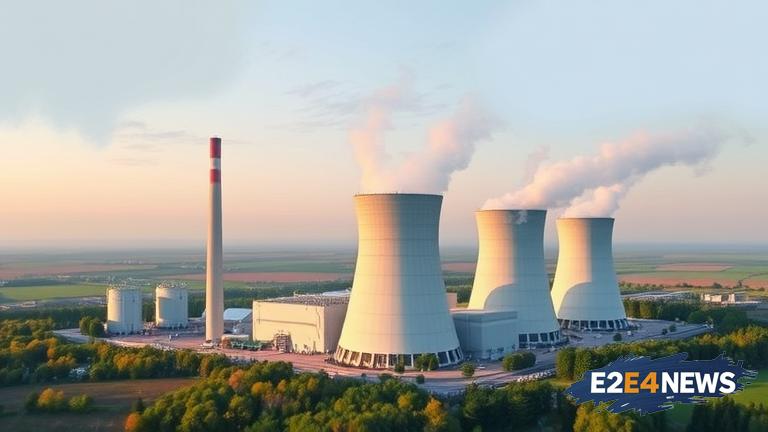Lithuania, a country located in the Baltic region, has been actively seeking to enhance its energy independence in recent years. The country has been heavily reliant on Russian energy imports, but with the current geopolitical tensions, Lithuania is looking to reduce its dependence on Russian energy. To achieve this goal, the Lithuanian government has announced plans to build a new power plant, which will be fueled by liquefied natural gas (LNG). The new power plant is expected to increase Lithuania’s energy independence and security, while also reducing its greenhouse gas emissions. The project is seen as a significant step towards achieving Lithuania’s energy goals, which include reducing its reliance on Russian energy and increasing the use of renewable energy sources. The new power plant will be built in the port city of Klaipeda, which is already home to an LNG terminal. The terminal, which was built in 2014, has been playing a crucial role in supplying LNG to Lithuania and other Baltic countries. The new power plant will have a capacity of 700 megawatts, making it one of the largest power plants in the region. The project is expected to be completed by 2025, with an estimated cost of around 500 million euros. The Lithuanian government has stated that the new power plant will not only increase energy independence but also create new jobs and stimulate economic growth. The project has received support from the European Union, which has provided funding for the development of the power plant. The EU has been actively promoting the development of LNG infrastructure in the region, as part of its efforts to reduce dependence on Russian energy. The new power plant is also expected to have a positive impact on the environment, as it will reduce greenhouse gas emissions and other pollutants. Lithuania has set ambitious targets to reduce its greenhouse gas emissions, and the new power plant is seen as a key step towards achieving these goals. The country has also been investing heavily in renewable energy sources, such as wind and solar power. The development of the new power plant is seen as a significant milestone in Lithuania’s efforts to enhance its energy independence and security. The project is expected to have a positive impact on the country’s economy, as well as its environment. The Lithuanian government has stated that it will continue to work towards reducing its reliance on Russian energy, and increasing the use of renewable energy sources. The new power plant is seen as a key step towards achieving these goals, and is expected to play a significant role in Lithuania’s energy mix in the coming years. The project has received widespread support from the public, as well as from businesses and industry leaders. The development of the new power plant is seen as a positive step towards enhancing Lithuania’s energy independence and security, and is expected to have a lasting impact on the country’s energy sector. In conclusion, the new power plant is a significant step towards achieving Lithuania’s energy goals, and is expected to have a positive impact on the country’s economy and environment. The project is seen as a key milestone in Lithuania’s efforts to enhance its energy independence and security, and is expected to play a significant role in the country’s energy mix in the coming years.
